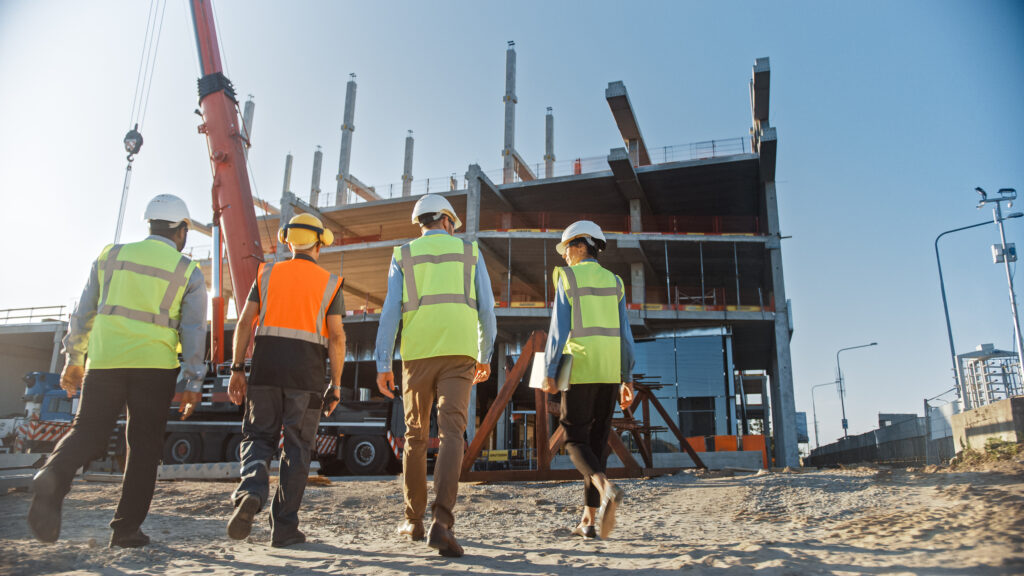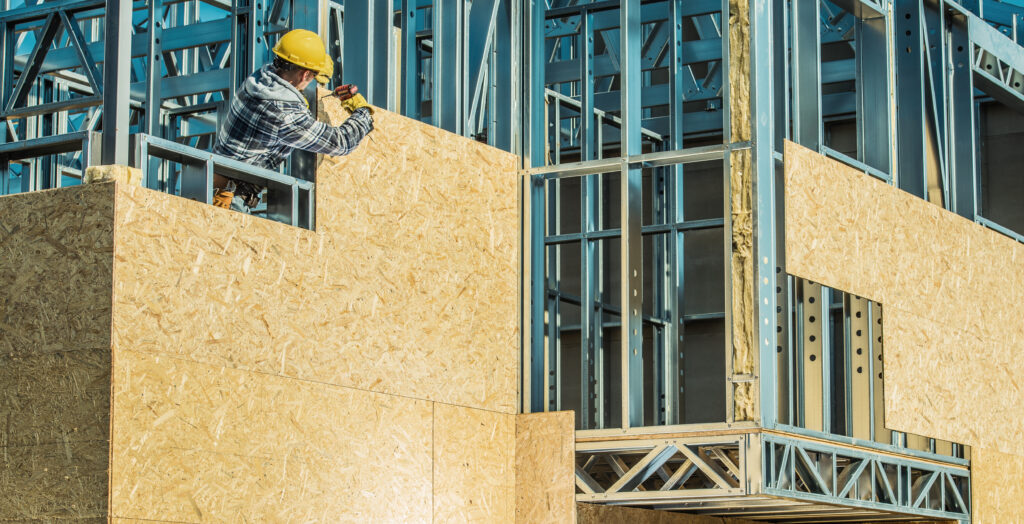
A successful commercial construction project starts with hiring the right contractor. Commercial contractors are crucial in bringing architectural designs to life from concept to completion. However, not all commercial contractors are the same. They specialize in various areas, possess distinct skill sets, and cater to different industries.
This blog examines the different types of commercial contractors and highlights their unique roles in the construction industry.
General Contractor
A general contractor is a construction professional who manages and oversees construction projects. They coordinate all aspects of the project, including planning, hiring subcontractors, procuring materials, ensuring compliance with regulations, maintaining quality and safety standards, managing the budget, and facilitating communication between stakeholders. Their role is essential in ensuring the successful completion of construction projects. Such project roles include:
- Project Planning
- Subcontractor Management
- Procurement and Material Management
- Permits and Regulations
- Quality Control and Safety
- Budget and Cost Management
- Project Management
Electrical Contractor
An electrical contractor is a specialized professional or company focusing on electrical systems and installations in various buildings and structures. They are responsible for designing, installing, maintaining, and repairing electrical systems. The electrical contractor can work on new builds, renovations, and retrofitting projects. The role of an electrical contractor typically involves the following:
- Electrical System Design
- Installation and Wiring
- Maintenance and Repairs
- Code Compliance and Regulations
- Safety and Risk Mitigation
- Upgrades and Energy Efficiency
- AV and Mass Notification Systems
Plumbing Contractor
Plumbing contractors install, repair, and maintain plumbing systems in buildings as professionals or companies. They are responsible for ensuring the proper functioning of water supply, drainage, and sewage systems. Their skills allow them to be part of all project types including new builds and renovations. Plumbing contractors are specialized in:
- Installation
- Plumbing System Design
- Repairs and Maintenance
- Drainage and Sewage Systems.
- Compliance and Safety
- Water Efficiency and Conservation
HVAC Contractor
An HVAC (Heating, Ventilation, and Air Conditioning) contractor specializes in installing, repairing, and maintaining HVAC systems in buildings. HVAC contractors ensure proper heating, cooling, and ventilation within residential, commercial, and industrial spaces. They also help contribute to creating optimal air quality, and energy conservation in buildings. Like many other specialized contractors, HVAC professionals primarily focus on:
- Installation
- Repairs and Maintenance
- HVAC System Upgrades and Retrofitting
- Indoor Air Quality Systems
- Energy Efficiency and Sustainability
- Compliance and Regulation
Framing Contractor
A commercial framing contractor provides the structural support and structural framework, or “frame,” of a building. The frame serves as the skeleton or support structure for the entire building, including walls, floors, and roofs. Framing contractors also provide additional support:
- Studying and Interpreting Construction Plans
- Material Selection and Procurement
- Layout and Measurement
- Wall Framing
- Floor and Roof Framing
- Sheathing and Subfloor Installation
- Project Coordination with Other Trades

Concrete Contractor
Contractors specializing in concrete construction will handle all of the necessary concrete construction and maintenance on a job, including foundation pouring, floor cementing, parking lot construction, etc. Primary project responsibilities include:
- Concrete Pouring and Placement
- Formwork Installation
- Reinforcement Placement
- Finishing and Curing
- Concrete Repairs
Flooring Contractor
A flooring contractor is responsible for installing, repairing, and maintaining various flooring materials. They are responsible for ensuring flooring surfaces’ proper installation and functionality in residential, commercial, and industrial buildings. The role of a flooring contractor typically includes the following:
- Flooring Material Selection
- Flooring Installation
- Surface Preparation
- Flooring Repairs and Maintenance
- Subfloor Inspection
- Removal and Disposal
Roofing Contractor
Roof contractors specialize in the construction of roofs. Roofing contractors install, replace, and repair roofs on buildings using various materials such as shingles, bitumen, and metal. They are responsible for ensuring the roofing system’s integrity, durability, and functionality. Project responsibilities include:
- Roof Installation
- Roof Inspection
- Roof Replacement
- Roofing Material Selection
- Compliance with Building Codes and Regulations
- Emergency Roof Repairs
Iron & Steel Contractor
An iron and steel contractor, also known as a structural steel contractor or steel erector, is a professional or a company specialized in the fabrication, installation, and construction of structural steel components used in building projects. They work with iron and steel materials to create the framework and structural elements of buildings and other structures. Additional support includes:
- Structural Steel Fabrication:
- Site Preparation and Logistics
- Steel Erection
- Welding and Bolted Connections
- Safety Measures
- Quality Assurance and Inspections
Commercial construction involves many different trade specialties. Each specialty plays a very important and unique role in constructing a large-scale project. Division 9 Commercial Construction offers project support and works closely with the best in the industry. Contact us today to learn more about our capabilities.
